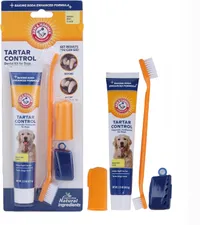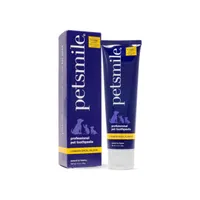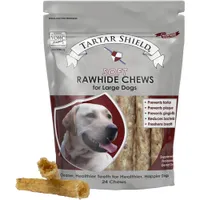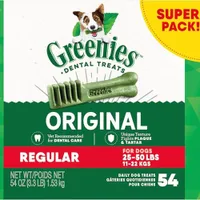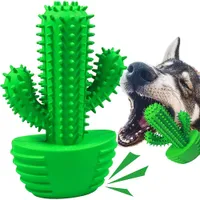5 reasons for bad breath in dogs (and how to treat it)
Bad breath in dogs can be a sign of an underlying health issue. Here's everything you need to know about the most common causes and how to treat it...
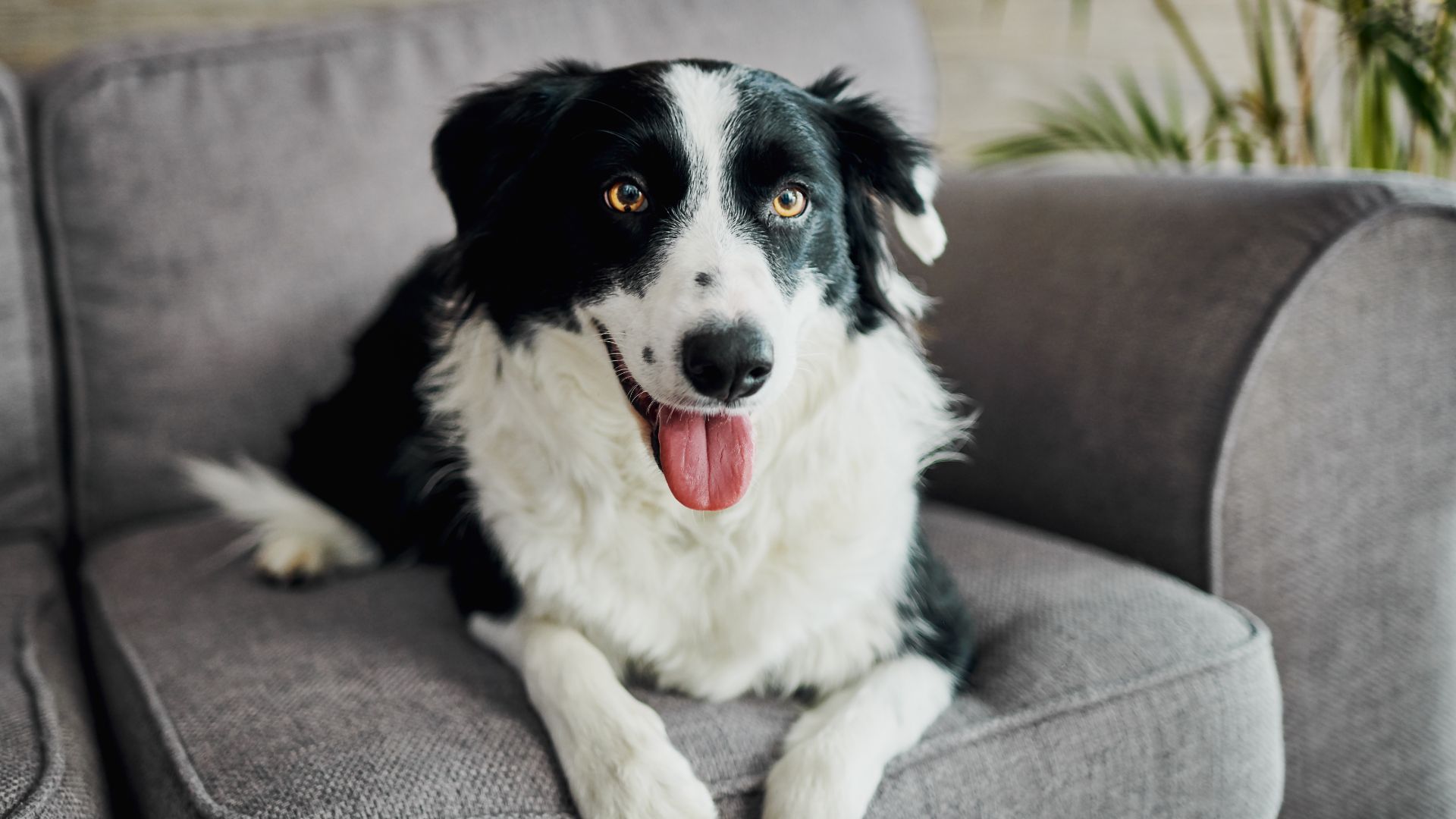
Bad breath in dogs isn’t the most pleasant of conditions to be dealing with as a pet parent, especially if your canine companion loves nothing more than to smother you with kisses the minute you walk through the door.
While there are plenty of tips on how to keep dog teeth clean and healthy, it’s important to figure out why your beloved bundle of fluff is experiencing bad breath in the first place so that you can then choose the most appropriate form of treatment, which may be as simple as buying the best toothbrush for dogs.
Although we often just write off a dog’s bad breath as part and parcel of owning a pup, it’s worth noting that while a certain degree of stinky breath is to be expected from time to time, a foul and persistent odor is often the sign of an underlying health issue.
Learning how to brush a dog’s teeth can certainly be a useful skill when it comes to preventing plaque and tartar build-up, but other more serious conditions, such as diabetes in dogs, kidney disease, and liver disease, are all potential health issues that can cause bad breath and require specialist intervention.
If you’re a little mystified by dog gum health, or indeed dog gum diseases, you might want to read up on how often to brush dog teeth or how much dog teeth cleaning costs.
What causes bad breath in dogs?
According to companion animal vet Dr Rebecca MacMillan, “normal dog breath may have a slight odor up close, for example licking you or panting, but it shouldn’t smell particularly bad.”
While you may be tempted to dismiss the foul odor coming from your canine companion's mouth as just normal stinky dog breath, it’s something that’s worth paying attention to as there’s likely a very good reason behind it. “If your dog’s breath smells bad, then this is a clear indication that something is wrong,” adds Dr MacMillan.
Get the best advice, tips and top tech for your beloved Pets
Some of the most common causes of bad breath in dogs include:
1. Poor dental hygiene
“Halitosis (bad breath) can be caused by several issues, but the most common is poor dental hygiene,” says Dr MacMillan. “The levels of bacteria found in your dog’s mouth will be increased if they have tartar buildup and gum inflammation, contributing to the bad smell. ”
Too much plaque and tartar can actually result in the gums being pushed away from the teeth, which exposes new areas that bacteria can set up camp in. If left untreated, the gums can become inflamed and infected, and the teeth themselves may even begin to fall out. Needless to say, all of this can lead to some very nasty-smelling breath.
“A dog that has something trapped in their mouth or between their teeth, like a bit of stick or bone, may also have foul breath,” adds Dr MacMillan. “Oral tumors may cause an increase in odor too. So, halitosis needs to be taken seriously, don’t just ignore it as ‘doggy breath’.”
2. Poor dietary habits
Let’s be honest, as much as we love our canine companions, sometimes the things they choose to consume are downright disgusting. “Diet doesn’t usually impact the smell of your dog’s breath too much if you are following a good oral care regime,” says Dr MacMillan. “The only exceptions to this are if your dog has very recently eaten a meal that is particularly smelly, such as fish, or if they have eaten something they shouldn’t have.
“Some dogs have a habit of eating feces or constantly licking at their bottoms when suffering from overfull anal glands, both of which will give them bad breath.”
3. Diabetes
A serious but treatable condition, diabetes in dogs is fairly common, affecting around 1 in 300 pups. Along with symptoms like an increase in thirst and urination, bad breath that has a sweet or fruity smell to it is another key sign of the condition.
“Diabetic patients can have a different type of halitosis, where their breath smells of ketones,” explains Dr MacMilllan. “To some people, this takes on a slightly sweet aroma, almost like pear drops. This happens when the animal has insufficient insulin to utilize energy in the normal ways and starts to break down fat tissue in their own body instead.
“If this process is allowed to continue then ketoacidosis will occur, a serious complication in unstable diabetics.”
Dogs can be affected by two kinds of diabetic condition: diabetes mellitus and diabetes insipidus.
If you notice this or any other symptoms, it’s important to make an appointment with your vet straight away so your dog can get a full examination.
4. Kidney disease
A healthy dog’s kidneys work to regulate hydration, remove toxins, maintain a normal balance of electrolytes and release hormones required to produce red blood cells.
When the kidneys aren’t working properly, either due to an underlying disease or kidney failure, toxins start to build up in the blood and these can cause your dog’s breath to smell like urine.
“I have seen many animals with kidney disease that have something called uraemic breath,” reports Dr MacMillan. “This type of bad breath is caused by a build-up of waste products in the animal’s body, due to the inability of the kidneys to excrete them properly. This may or may not be accompanied by oral ulceration, especially on the edges of the tongue. This is most often seen in advanced chronic kidney failure, alongside other symptoms such as dehydration, changes in drinking behavior, and weight loss.”
If you notice your dog’s bad breath has an ammonia-like quality to it, don’t delay. Get your pup checked out by a vet as soon as possible as kidney disease and failure are both serious issues that require immediate treatment.
5. Liver disease
Alongside the kidneys, the liver acts as a filtration system that removes toxins from the body. “Advanced liver disease may also cause bad breath in some animals, due to a build-up of toxins in the body and dehydration,” says Dr MacMillan. If your dog’s breath is truly awful and it’s accompanied by other symptoms such as yellowing of the skin and eyes (jaundice), weight loss, poor appetite and vomiting, liver disease could be to blame.
Just like with kidney disease, liver disease is a serious condition that can lead to seizures, coma, and even death if left untreated. “These warning signs should not be ignored,” cautions Dr MacMillan. “Metabolic diseases such as diabetes and kidney disease can be fatal if left untreated, so you should seek help immediately if you think there is something wrong with your pet.”
Bad breath in dogs: how to prevent and treat it
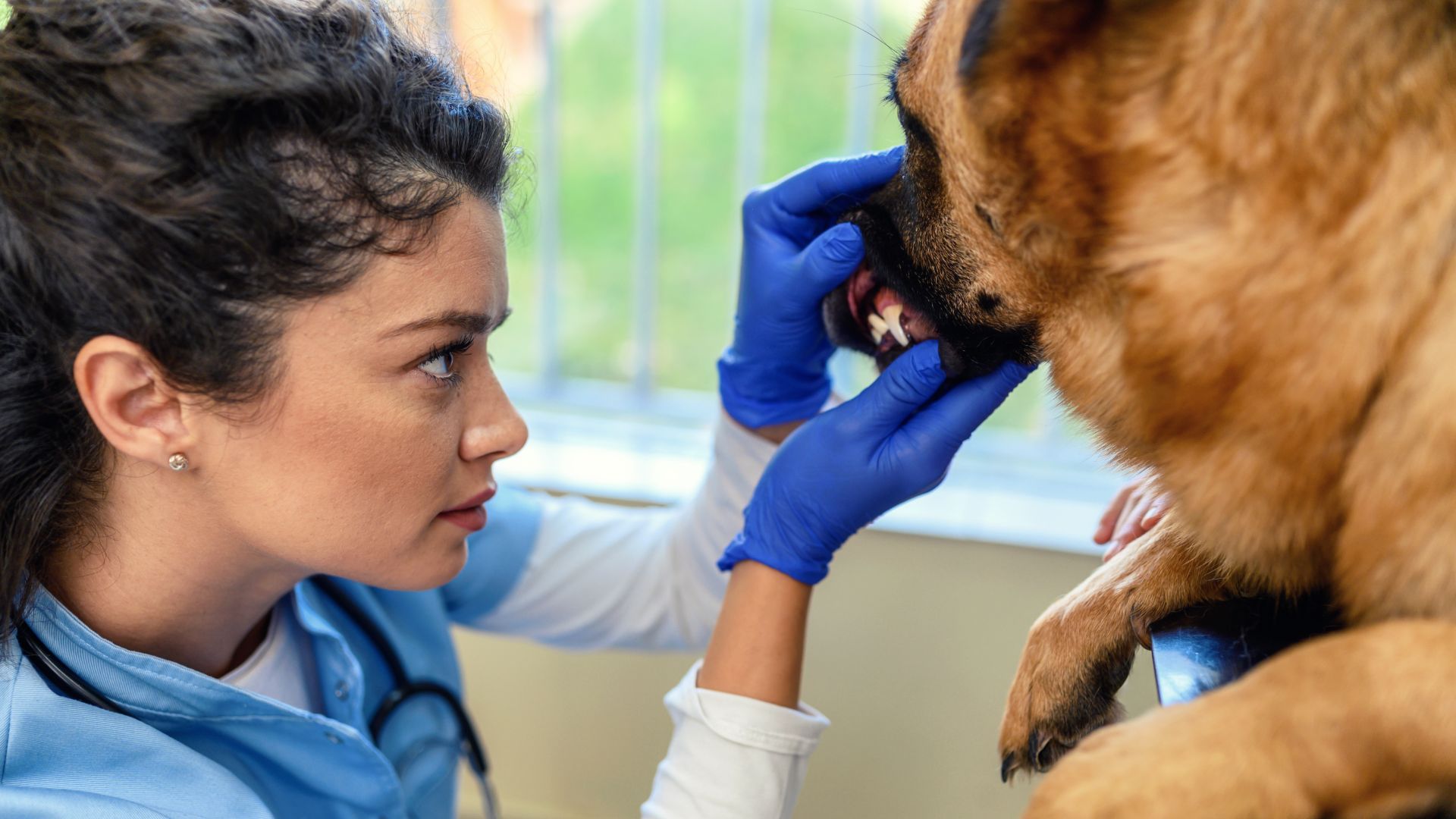
When it comes to preventing bad breath in your dog, there are several simple things you can do at home to keep those pearly whites in tip-top condition.
1. Regular brushing
Just like we humans need to brush our teeth every day to keep them healthy and looking their best, the same is true for our canine companions. “Maintaining good oral hygiene with daily brushing is key to preventing bad breath in dogs,” says Dr MacMillan. “Try to implement teeth brushing from a young age by using positive association training to get your pet gradually used to the process. Daily brushing with a specially formulated toothpaste for dogs is the most effective way to prevent plaque and tartar from forming.”
Now, a word of warning – your dog probably won’t like getting their teeth brushed at first, but don’t worry, that’s to be expected. “Even adult dogs can learn to accept teeth brushing with patience and consistent positive reinforcement,” adds Dr MacMillan. “You should also get your pet used to having their mouth handled, so that you can examine their teeth and gums regularly, to keep an eye out for any problems.”
To help make it easier, be sure to start off slowly. Spend a few days showing your dog the toothbrush and touching their fur with it without attempting to put it anywhere near their mouth. Let them sniff it and get used to this new object.
Next, pop some toothpaste on the brush and let your dog investigate that. Repeat this for several days, once again without attempting to brush their teeth. After you’ve done this, try popping a bit of toothpaste on their gums so that they can get used to the taste and feel of it.
Once your dog seems comfortable with all of this, you can gently try brushing their teeth for the first time, being sure to reward them with lots of verbal praise and a treat afterward.
Arm & Hammer for Pets Tartar Control Kit for Dogs
This kit comes complete with all the essentials you’ll need to make sure your dog’s teeth have the best home care. It comes with a double-headed brush, finger brush and plaque-fighting enzymatic toothpaste.
Petsmile Professional Pet Toothpaste
This toothpaste is the only dog toothpaste approved by the Veterinary Oral Health Council. It reduces tartar and plaque, brightens teeth, freshens breath.
2. Dental treats
The best dental chews for dogs don’t just help remove plaque and tartar from your pup’s teeth while they chew, they also make for a great treat. “Dental chews and supplements may also help alongside teeth brushing, but it is best to choose a product that is Veterinary Oral Health Council (VOHC) approved,” stipulates Dr MacMillan.
Chewing is ideal for keeping the teeth and gums healthy, so be sure to provide your canine companion with plenty of chew toys and dental treats.
Tartar Shield Soft Rawhide Chews
VOHC-approved rawhide chews in a natural bacon flavor that are clinically proven to reduce plaque, tartar and gingivitis. Available in three sizes.
Greenies Original Regular Natural Dental Care Dog Treats
These tasty treats have a chewy texture and come in a variety of flavors. They help clean your dog’s teeth, maintain healthy gums and freshen their breath.
3. Special oral health diet
One final way that you can care for your dog’s teeth at home is to swap them over to a special dental diet. The best dry dog food has a range of kibbles that have been designed with a coarse texture that will sweep away plaque and tartar while your dog chews.
Apply dog toothpaste to this chew toy and get your dog to chew it off. The bristles will help clean their teeth and your dog will love the challenge.
How do you fix a dog's bad breath?
“If your dog already has bad breath, then the first thing I would recommend is a vet appointment,” says Dr MacMillan. “If you just try and start brushing your dog’s teeth now, you may cause them discomfort especially if they have inflamed gums or loose teeth. This will only give them a negative association with the process, putting them off from teeth brushing longer-term.
“In some cases, your vet may suggest a dental procedure, so that they can professionally clean the teeth and treat any issues first,” she adds. “If dental disease is not the cause of your dog’s bad breath, they will help to figure out what is.
“Once your pet is given the go-ahead by your vet, you can then start your oral care regime at home.”
If you want to learn more about canine oral hygiene, we’ve got advice on dog gum disease and how to clean a dog’s teeth without brushing.
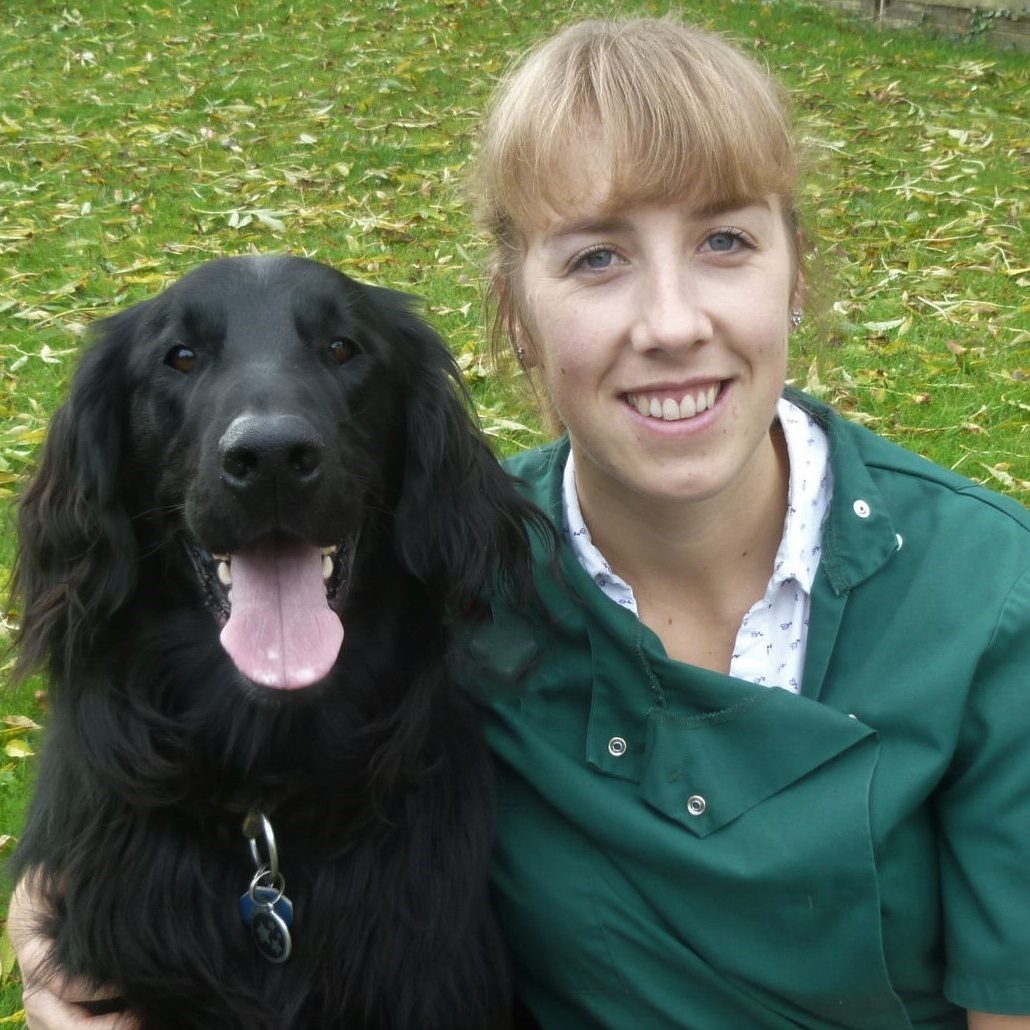
Dr MacMillan is a companion animal vet who has always had a passion for writing and client communication. She works in the South West and loves complex medical cases.

Bethany is an experienced writer who has been writing across the pets and equestrian sector for eight years.

Kathryn is a freelance writer who has been a member of the PetsRadar family since it launched in 2020. Highly experienced in her field, she's driven by a desire to provide pet parents with accurate, timely, and informative content that enables them to provide their fur friends with everything they need to thrive.
Kathryn works closely with vets and trainers to ensure all articles offer the most up-to-date information across a range of pet-related fields, from insights into health and behavior issues to tips on products and training.
When she’s not busy crafting the perfect sentence for her features, buying guides and news pieces, she can be found hanging out with her family (which includes one super sassy cat and a kitten), drinking copious amounts of Jasmine tea and reading all the books.
She has written for a range of publications, including Fit&Well, Top Ten Reviews, LiveScience, Goodto, and Product Hunt.
- Bethany StoneFreelance Writer
- Dr. Rebecca MacMillanVet
